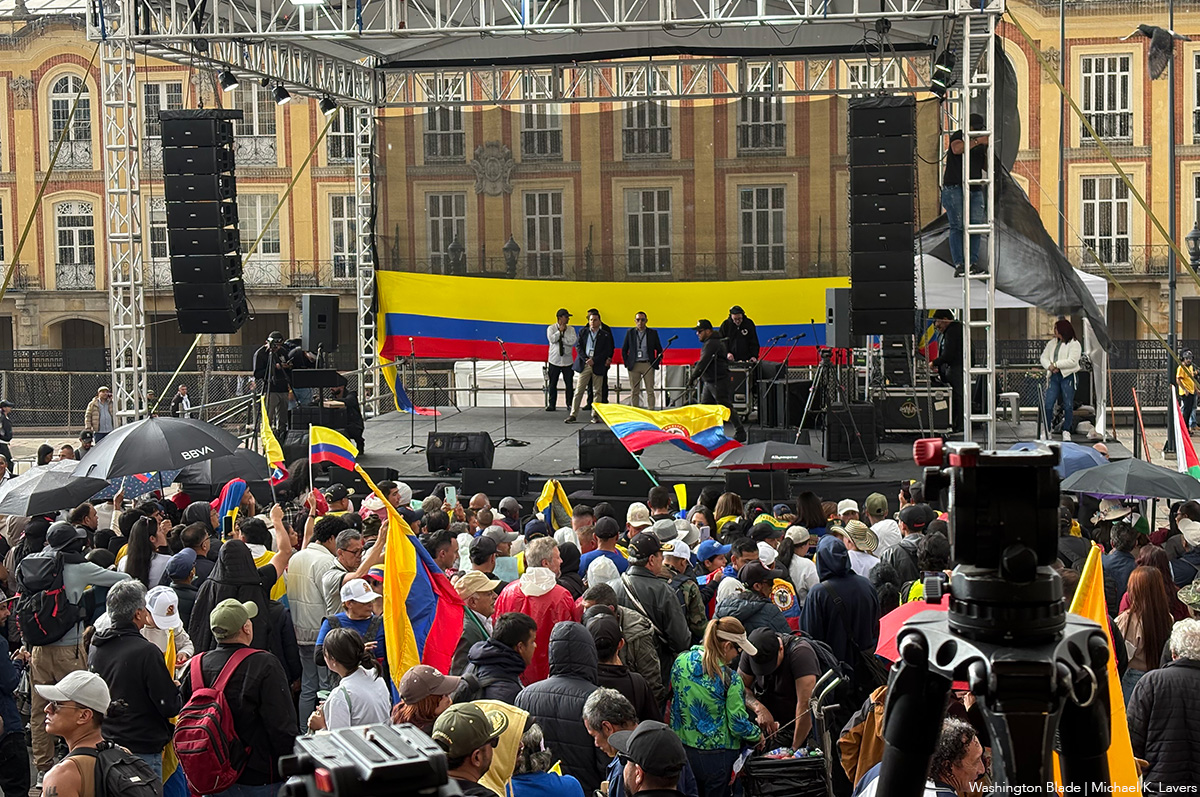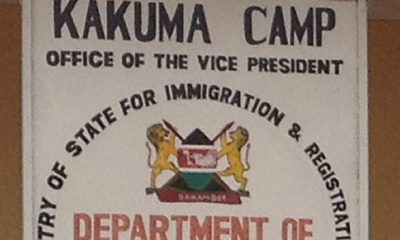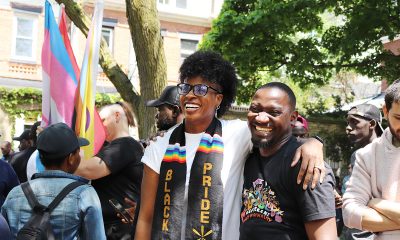World
Advocacy groups renew calls for U.S. to help LGBTQ Afghans
New report details Taliban abuses
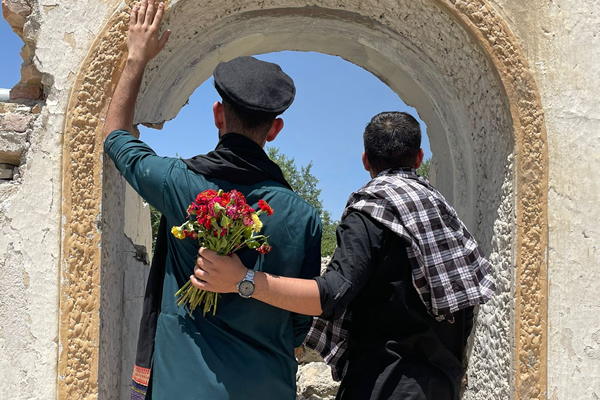
Advocacy groups on Wednesday renewed calls for the U.S. and other countries to do more to help LGBTQ Afghans who remain inside Afghanistan after the Taliban regained control of it.
A report from OutRight Action International and Human Rights Watch that details the plight of LGBTQ Afghans includes a series of recommendations for the U.S. and other “concerned governments.”
– Use any diplomatic leverage to press the Taliban to recognize the rights of everyone in Afghanistan, including LGBT people.
– Recognize that LGBT Afghans face a special risk of persecution in Afghanistan and neighboring countries and expedite their applications for evacuation and resettlement.
– Support and facilitate the delivery of humanitarian assistance to Afghans in need, and support organizations providing humanitarian assistance, including programs specifically designed to assist LGBT Afghans.
– Ensure that support to organizations working in Afghanistan is directed to organizations that commit to gender-sensitive programming, nondiscrimination, and inclusion of LGBT beneficiaries.
– In engagements with formal and informal civil society groups in Afghanistan, including human rights organizations, women’s rights and feminist organizations, and organizations focused on health, education, or youth, raise concerns about abuses against LGBT Afghans and urge such groups to be inclusive of LGBT Afghans.
– Engage with civil society organizations directly or indirectly addressing LGBT issues in Afghanistan, informal groupings of LGBT people, and community leaders who are well networked within LGBT communities to best help them protect their rights.
The report also includes recommendations for countries from which LGBTQ Afghans have asked for asylum.
– Fully respect the rights of Afghan people who are or are perceived to be LGBT to claim asylum where they can demonstrate a well-founded fear of persecution.
– When considering asylum claims and other requests for protection from LGBT Afghans, fully consider all evidence regarding violations of the rights of LGBT people in Afghanistan, who faced severe discrimination previously and especially since the Taliban takeover.
– When considering asylum claims for LGBT Afghans, take into consideration that LGBT individuals often conform to societal norms, such as entering into different sex marriage, in order to survive. Married status should not be taken as an indication of someone not being LGBT.
The report’s other recommendations include calls for international aid organizations inside Afghanistan to “provide targeted and specialized assistance to LGBT people” and for the Taliban to “urgently end any and all forms of discrimination or violence against anyone based on a person’s perceived or actual sexual orientation or gender identity.”
OutRight Action International and Human Rights Watch released their report less than six months after the Taliban regained control of Afghanistan.
A Taliban judge last July said the group would once again execute gay people if it were to return to power in the country. The report notes a Taliban official later said the group “will not respect the rights of LGBT people.”
The report includes interviews with 60 LGBTQ Afghans inside Afghanistan and in five other countries that OutRight Action International and Human Rights Watch conducted between October and December 2021.
A 20-year-old man with whom the groups spoke said Taliban members “loaded him into a car” at a checkpoint and “took him to another location where four men whipped and then gang raped him over the course of eight hours.” The report notes the man went into hiding, but the Taliban continued to target him and his family.
A lesbian woman with whom OutRight Action International and Human Rights Watch spoke said her parents “arranged for a speedy wedding” with a man before the Taliban regained control of Afghanistan. The report notes her parents beat her when she “tried to refuse to go through with it.”
The woman’s parents, according to the report, paid her husband to take her out of Afghanistan. They now live in another country, and he “beats her nearly every day and will not allow her to leave the house.”
The report also details an incident in which the Taliban beat a transgender woman and “shaved her eyebrows with a razor” before they “dumped her on the street in men’s clothes and without a cellphone.” She had been living with other trans women in an abandoned youth hostel in Kabul, the Afghan capital, when the Taliban regained control of the country.
“Lesbian, gay, bisexual, and transgender (LGBT) people in Afghanistan, and others who do not conform to rigid gender norms, have faced an increasingly desperate situation and grave threats to their safety and lives since the Taliban took full control of the country on Aug. 15, 2021,” reads the report’s summary.
‘More needs to be done’
Two groups of LGBTQ Afghans that three advocacy groups — Stonewall, Rainbow Railroad and Micro Rainbow — evacuated from Afghanistan with the help of the British government arrived in the U.K. last fall. Some of the dozens of Afghan human rights activists who Taylor Hirschberg, a researcher at the Columbia Mailman School of Public Health who is also a Hearst Foundation scholar, has been able to help leave the country since the Taliban regained control of it are LGBTQ.
Rainbow Railroad; the Council for Global Equality; the Human Rights Campaign; Immigration Equality; the International Refugee Assistance Project; the Organization for Refuge, Asylum and Migration in a letter they sent to President Biden last September called for his administration to “prioritize the evacuation and resettlement of vulnerable refugee populations, including LGBTQI people, and ensure that any transitory stay in a third country is indeed temporary by expediting refugee processing.”
Rainbow Railroad Executive Director Kimahli Powell on Wednesday during a webinar on the report noted his organization has “had really encouraging conversations with” Jessica Stern, the special U.S. envoy for the promotion of LGBTQ rights who was previously OutRight Action International’s executive director, and “her team and with the U.S. government and the Canadian government as well” about the evacuation of LGBTQ Afghans.
“More needs to be done,” said Powell.
Powell added there “are concrete things that we’ve asked to be done within the context of Afghanistan that can be done.”
“It’s encouraging that governments signaled early on that they want to help out Afghans at risk,” he said. “That signaling has led to many folks in Afghanistan who have enough social media to read those messages to ask how (sic) does that look like, including reaching out to us at Rainbow Railroad. And what we’re asking governments to do now is to help us answer that question, help us answer the question as to what we can do to protect people who are still stuck in Afghanistan, help people who are displaced outside of Afghanistan awaiting resettlement and partner with us to do it.”
OutRight Action International Senior Fellow J. Lester Feder echoed Powell.
“Regardless of the identity of the vulnerable people involved, not enough has been done to help vulnerable people,” said Feder during the webinar.
Feder also urged the U.S. government to do more to help LGBTQ Afghans and other vulnerable groups who remain inside the country.
“We know with the amount of support — either with people who had direct connections to the U.S. government or the U.S. military when they left — have been left stranded in Afghanistan,” said Feder.
“People who are supporting and support vulnerable Afghans in the United States need to speak up and show support for the government processing (asylum) cases faster and for more spaces being made available,” he added.
Iran
Grenell: ‘Real hope’ for gay rights in Iran as result of nationwide protests
Former ambassador to Germany claimed he has sneaked ‘gays and lesbians out of’ country

Richard Grenell, the presidential envoy for special missions of the United States, said on X on Tuesday that he has helped “sneak gays and lesbians out of Iran” and is seeing a change in attitudes in the country.
The post, which now has more than 25,000 likes since its uploading, claims that attitudes toward gays and lesbians are shifting amid massive economic protests across the country.
“For the first time EVER, someone has said ‘I want to wait just a bit,” the former U.S. ambassador to Germany wrote. “There is real hope coming from the inside. I don’t think you can stop this now.”
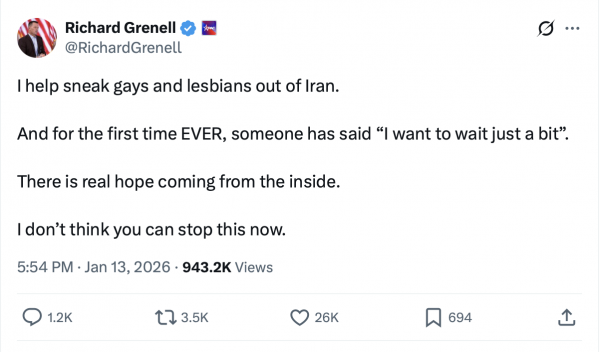
Grenell has been a longtime supporter of the president.
“Richard Grenell is a fabulous person, A STAR,” Trump posted on Truth Social days before his official appointment to the ambassador role. “He will be someplace, high up! DJT”
Iran, which is experiencing demonstrations across all 31 provinces of the country — including in Tehran, the capital — started as a result of a financial crisis causing the collapse of its national currency. Time magazine credits this uprising after the U.N. re-imposed sanctions in September over the country’s pursuit of nuclear weapons.
As basic necessities like bread, rice, meat, and medical supplies become increasingly unaffordable to the majority of the more than 90 million people living there, citizens took to the streets to push back against Iran’s theocratic regime.
Grenell, who was made president and executive director of the John F. Kennedy Center for the Performing Arts last year by Trump, believes that people in the majority Shiite Muslim country are also beginning to protest human rights abuses.
Iran is among only a handful of countries in which consensual same-sex sexual relations remain punishable by death, according to the Death Penalty Information Center.
Venezuela
AHF client in Venezuela welcomes Maduro’s ouster
‘This is truly something we’ve been waiting for’ for decades

An AIDS Healthcare Foundation client who lives in Venezuela told the Washington Blade he welcomes the ouster of his country’s former president.
The client, who asked the Blade to remain anonymous, on Thursday said he felt “joy” when he heard the news that American forces seized Nicolás Maduro and his wife, Cilia Flores, at their home in Caracas, the Venezuelan capital, during an overnight operation on Jan. 3.
“This is truly something we’ve been waiting for for 26 or 27 years,” the AHF client told the Blade.
Hugo Chávez became Venezuela’s president in 1999. Maduro succeeded him in 2013 after he died.
“I’ve always been in opposition,” said the AHF client, who stressed he was speaking to the Blade in his personal capacity and not as an AHF representative. “I’ve never agreed with the government. When I heard the news, well, you can imagine.”
He added he has “high hopes that this country will truly change, which is what it needed.”
“This means getting rid of this regime, so that American and foreign companies can invest here and Venezuela can become what it used to be, the Venezuela of the past,” he said.
The AHF client lives near the Colombia-Venezuela border. He is among the hundreds of Venezuelans who receive care at AHF’s clinic in Cúcuta, a Colombian city near the Táchira River that marks the border between the two countries.
The Simón Bolívar Bridge on the Colombia-Venezuela border on May 14, 2019. (Washington Blade video by Michael K. Lavers)
The AHF client praised U.S. President Donald Trump and reiterated his support for the Jan. 3 operation.
“It was the only way that they could go,” he said.
The Venezuelan National Assembly on Jan. 4 swore in Delcy Rodríguez, who was Maduro’s vice president, as the country’s acting president. The AHF client with whom the Blade spoke said he is “very optimistic” about Venezuela’s future, even though the regime remains in power.
“With Maduro leaving, the regime has a certain air about it,” he said. “I think this will be a huge improvement for everyone.”
“We’re watching,” he added. “The actions that the United States government is going to implement regarding Venezuela give us hope that things will change.”
Colombia
Colombians protest against Trump after he threatened country’s president
Tens of thousands protested the US president in Bogotá

BOGOTÁ, Colombia — Tens of thousands of people on Wednesday gathered in the Colombian capital to protest against President Donald Trump after he threatened Colombian President Gustavo Petro.
The protesters who gathered in Plaza Bolívar in Bogotá held signs that read, among other things, “Yankees go home” and “Petro is not alone.” Petro is among those who spoke.
The Bogotá protest took place four days after American forces seized now former Venezuelan President Nicolás Maduro and his wife, Cilia Flores, at their home in Caracas, the Venezuelan capital, during an overnight operation.
The Venezuelan National Assembly on Sunday swore in Delcy Rodríguez, who was Maduro’s vice president, as the country’s acting president. Maduro and Flores on Monday pleaded not guilty to federal drug charges in New York.
Trump on Sunday suggested the U.S. will target Petro, a former Bogotá mayor and senator who was once a member of the M-19 guerrilla movement that disbanded in the 1990s. Claudia López, a former senator who would become the country’s first female and first lesbian president if she wins Colombia’s presidential election that will take place later this year, is among those who criticized Trump’s comments.
The Bogotá protest is among hundreds against Trump that took place across Colombia on Wednesday.
Petro on Wednesday night said he and Trump spoke on the phone. Trump in a Truth Social post confirmed he and his Colombian counterpart had spoken.
“It was a great honor to speak with the president of Colombia, Gustavo Petro, who called to explain the situation of drugs and other disagreements that we have had,” wrote Trump. “I appreciated his call and tone, and look forward to meeting him in the near future. Arrangements are being made between Secretary of State Marco Rubio and the foreign minister of Colombia. The meeting will take place in the White House in Washington, D.C.”
